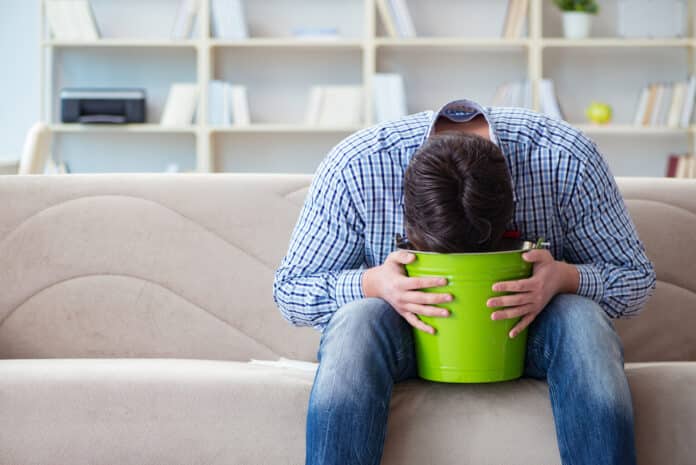
No one likes the feeling of an upset stomach. However, sometimes upset stomach symptoms can become severe and debilitating. If your upset stomach has quickly morphed into an attack of nausea, vomiting, diarrhea, and fever – you may have food poisoning.
Food poisoning, which is sometimes referred to as foodborne illness, is an illness caused by consuming contaminated food. Infectious organisms such as bacteria, viruses, and parasites are the most frequent causes of food poisoning.
People often do not know the food they are eating has been contaminated. It isn’t until unpleasant symptoms set in that you might realize something was amiss. That is to say – preventing food poisoning can be difficult, and many people are left to deal with the undesirable symptoms.
Symptoms of Foodborne Illness
There is a fuzzy line between an upset stomach and full-blown food poisoning. Generally, food poisoning symptoms will be more severe and consistent than the symptoms associated with a merely irritated stomach.
Food poisoning symptoms can start within 12 hours of eating the contaminated food. Symptoms of foodborne illness include:
- Frequent vomiting accompanied by nausea.
- Watery and/or bloody diarrhea.
- Abdominal pain and cramping.
- Fever.
The symptoms caused by food poisoning usually last anywhere from a few hours to several days. In most cases, food poisoning can be managed at home by treating the symptoms and getting plenty of rest. In rare cases, hospitalization may be necessary.
Managing Foodborne Illness at Home
Most people who get food poisoning will not need to be hospitalized. However, that doesn’t mean their symptoms won’t be severely uncomfortable. Taking steps to heal your body during an episode of food poisoning is crucial to a swift recovery.
To manage your symptoms at home, you can:
- Withhold food and water for a few hours. Not drinking or eating anything for a few hours allows the stomach to rest and recuperate.
- Drink an adequate amount of fluids. Though it may be hard to hold down fluids, it’s crucial that you replace the water exiting your body. Plain water will do just fine. A drink enriched with electrolytes, such as Pedialyte, can be a great option after your stomach has settled a bit and can handle a flavored drink.
- Avoid certain foods. Acidic or spicy foods, caffeinated beverages, alcohol, nicotine, and dishes with lots of seasonings should be avoided.
- Follow a BRAT diet. BRAT stands for bananas, rice, applesauce, and toast. These bland foods will be the easiest to handle during food poisoning.
- Get lots of sleep.
Conclusion
Foodborne illness causes an array of undesirable symptoms and can leave someone feeling awful! Thankfully, most bouts of food poisoning last under 72 hours.
If your symptoms have been going on longer than three days, your fever will not break, or you are showing signs of dehydration, you may need to see a doctor. Most people can recover at home with adequate self-care methods.


















